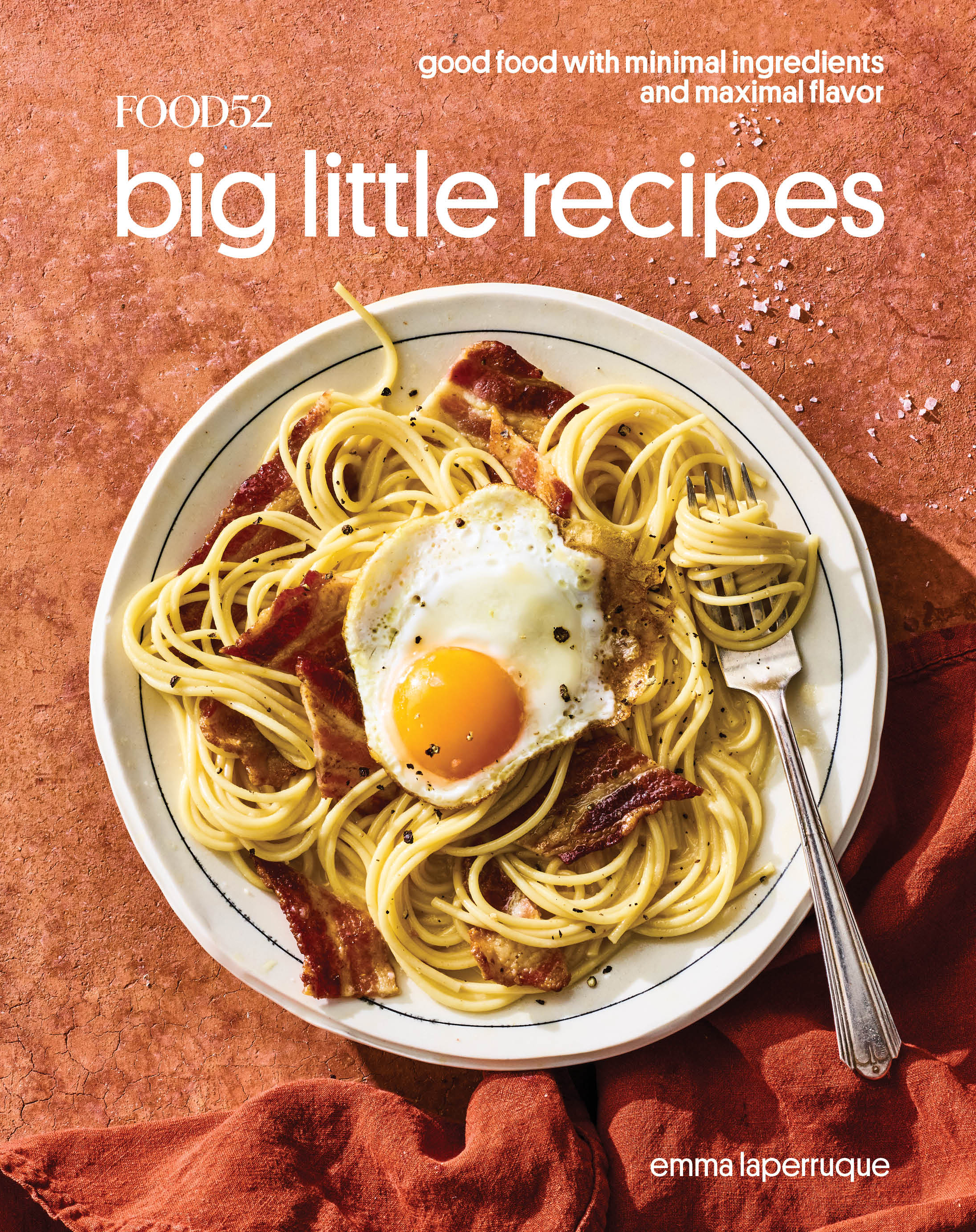0 seconds of 4 minutes, 36 secondsVolume 0%
Press shift question mark to access a list of keyboard shortcuts
Keyboard Shortcuts
Shortcuts Open/Close/ or ?
Play/PauseSPACE
Increase Volume↑
Decrease Volume↓
Seek Forward→
Seek Backward←
Captions On/Offc
Fullscreen/Exit Fullscreenf
Mute/Unmutem
Decrease Caption Size-
Increase Caption Size+ or =
Seek %0-9

Put down those long grocery lists. Inspired by the award-winning column, our Big Little Recipes cookbook is minimalism at its best: few ingredients, tons of flavor.
Order nowPopular on Food52
Continue After Advertisement
13 Comments
Bonniesue
May 6, 2021
I remember arriving in Japan for the first time in the 1990’s after a long flight across many time zones. We were all very tired, but our hosts immediately took us to a formal meal. The most soothing dish was the egg custard, served in lovely individual covered dishes, with an artistically placed leaf on top. Truly appreciated.
Josiah B.
April 7, 2021
This was fun. What is it called when you turn it into a dessert? Is that common in Asia?
Lily
April 6, 2021
My mom made this dish for me when I was a child. She would occasionally use chicken broth (in place of water) to season the egg custard. This dish is simple and delightful. It is my comfort food when I miss home and need a mother's hug.
Hetty L.
April 7, 2021
Lily, I am so happy to hear this! I really love to hear about these shared experiences. It is my comfort food too!
Jean M.
April 6, 2021
I grew up eating the Korean version. We use these super salty tiny shrimps for the sodium (and umami)...I will never get sick of eating it with a bowl of rice.
Hetty L.
April 7, 2021
I have read about the Korean version, my friends told me it's more "souffle-like" or fluffy. I love all the different variations! Ot brings us all closer together.
jpriddy
April 6, 2021
This sounds wonderful. Has anyone else noticed how a little salt seems to break down eggs after they've sat for a few moments, easing the challenge of getting eggs smooth? Maybe while waiting for the water to cool let the salted eggs sit?
Azize T.
April 6, 2021
Kenji Lopez. He proved with science that eggs needs to be salted and sit for at least 15 mins
Tessi
April 6, 2021
I am really looking forward to trying this, as I like the simplicity as well as it being a "comfort food"! I have one question: are the eggs being used directly from the fridge, or should they be at room temperature?
Tessi
April 7, 2021
Thank you, Hetty! I have had the similar dish that is served in Japan and found it intriguing and calming at the same time. The texture that is described in this recipe certainly makes me think of what I ate in Japan.





Join The Conversation